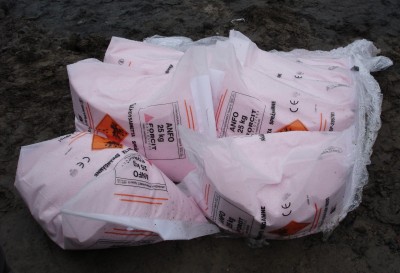Calls for stronger regulation of the sale of ammonium nitrate fertilizers have been made following the suspected use of the materials in the bombing of Oslo on Friday July 22 – with experts suggesting that new EU regulations set to be introduced in Norway are not enough.

The alleged perpetrator of the bombings and the subsequent shootings on Utøya island, Anders Behring Breivik, is known to have obtained large quantities of fertilizer through an unincorporated firm he founded in 2009 called Breivik Geofarm, which he claimed would cultivate and sell vegetables and fruits. According to a manifesto that Breivik allegedly published online before the attacks, he established such an enterprise, in addition to a “mining company,” in order “to create a credible cover” for the purchase of fertilizer and other materials required to make a home-made explosive device.
Breivik bought around six tons of fertilizer, made up of various types of ammonium nitrates, from Felleskjøpet Agri in April or May. Mixed with diesel, ammonium nitrate is used to produce the explosive ammonium nitrate fuel oil (ANFO). Variants of ANFO have been used by the IRA and ETA, and in the 1993 World Trade Center bombings and the 1995 Oklahoma City bombings.
New EU rules on the way
A spokesperson for Felleskjøpet Agri, Oddny Estenstad, confirmed to news website E24.no that the company “did no examinations” of the suspect because he was buying “standard products that everyone can purchase.” Estenstad also stated that “it is not necessary to register as a company in order to buy these products.” According to the company’s website, the quantities purchased by Breivik were not unusual for such commercial customers.
EU regulations regarding the sale of materials that could be used to make home-made bombs were developed after the Madrid and London bombings in 2004 and 2005. The responsibility for regulating fertilizer sale in Norway lies with the Directorate for Civil Protection and Emergency Planning (Direktoratet for samfunnssikkerhet og beredskap, DSB). A spokesperson for DSB, Siri Haugehaugen, confirmed to newspaper Aftenposten that a new EU regulation would soon be introduced that “will limit further sale and use of a part of the substances that can be used as explosive material, including fertilizer.” Haugehaugen emphasized that the key benefit of the new rules would include a warning system that would identify anyone who purchased large amounts of fertilizer.
DSB’s website further confirmed details of the EU proposal the day after the bombings, which will prohibit the distribution of fertilizer “with over 16 percent nitrogen content from ammonium nitrate for normal consumers.” Only “professional users” with “permission to handle explosives,” part-time and full-time farmers, and “people with commercial undertakings in gardening, cultivation of plants in greenhouses, maintenance of parks, garden or sports sites, forestry or similar activities” will be allowed to purchase amounts above these restrictions. Such users will require documentation. The new EU rules will become binding for Norway, a non-EU member, as part of the agreement between the EU and the European Economic Area (EEA), of which Norway is a member.
‘Not enough’
Nonetheless, Per Nergaard, a bomb expert with Norwegian People’s Aid (Norsk Folkehjelp), told Norwegian Broadcasting (NRK) that even these levels of regulation would not be enough. He estimated that Breivik had managed to accumulate enough material to make a bomb that was “around half as powerful” as those used in the 1998 US embassy bombings in Nairobi, during which around three ANFO-like devices killed approximately 212.
Nergaard went on to tell Aftenposten that “there is a threshold in order to get hold of fertilizer in Norway, but it is unfortunately not very high.” Describing such bombs as “easy to make,” Nergaard stressed again that “there is a very clear need for stricter regulations in Norway.” The DSB have stated on their website that there are already stipulations regarding the storage and transport of ammonium nitrate under Norwegian law in addition to existing or coming EU regulations.
Companies and governments react
Norway’s largest agricultural company, Yara International, has also launched an investigation into whether its products could have been used in the bombing. Asle Skredderberget, Yara’s director of information, told newspaper Dagens Næringsliv that the company “does not sell to end users but to distributors,” stressing that “on a portion of products, there are very strict regulations on how it is transported, stored and sold.” He said that Yara “has worked with increasing the density of the products so that they will be more difficult to misuse,” as well as having “worked with the size so that it will be difficult to steal or take away.”
Meanwhile, the Danish government has already announced its intention to better regulate the distribution of fertilizer. Lars Barfoed, the Danish minister of justice, was reported by news agency NTB to have said that his government “will learn from this event, and for that reason we will obviously go through the rules in order to see if there is a need to tighten up.”
Views and News from Norway/Aled-Dilwyn Fisher
Join our Readers’ Forum or comment below.
To support our news service, please click the “Donate” button now.

